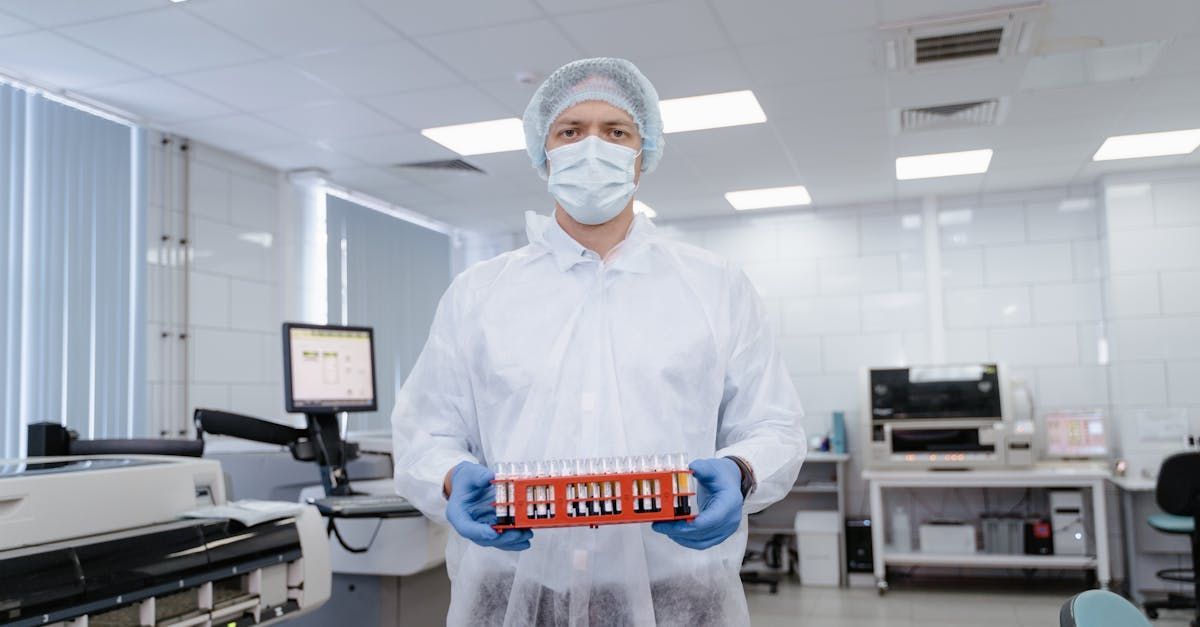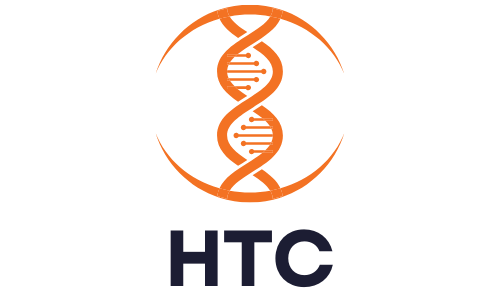HealthTech Innovations in Mental Health Care
The global mental health crisis is an escalating concern, with millions of individuals affected by conditions such as depression, anxiety, and bipolar disorder. The World Health Organization (WHO) estimates that nearly one in four people will be impacted by mental or neurological disorders at some point in their lives. Despite this widespread prevalence, mental health care often lags behind other areas of medicine in terms of accessibility, funding, and innovation. The traditional approaches to treatment, including therapy and medication, although effective for many, do not address the diverse and evolving needs of all patients.
In this context, HealthTech has emerged as a powerful catalyst for change. Leveraging advances in technology, from artificial intelligence (AI) to wearable devices, the HealthTech sector is revolutionizing how mental health care is delivered, monitored, and managed. These innovations are not only enhancing the effectiveness of treatments but also making mental health care more accessible and personalized.
The purpose of this blog is to delve into the latest innovations in HealthTech that are transforming mental health care. We will explore how cutting-edge technologies are being utilized to improve patient outcomes, increase access to care, and provide new tools for clinicians and patients alike. By examining these developments, we aim to highlight the potential of HealthTech to address the mental health crisis and pave the way for a more inclusive and effective mental health care system.
The State of Mental Health Care
Despite growing awareness, mental health care still faces significant challenges that hinder its effectiveness and accessibility. Three primary obstacles stand out: stigma, access, and cost.
Stigma
Stigma surrounding mental health remains a major barrier to care. Many individuals feel ashamed or afraid to seek help due to societal attitudes and misconceptions about mental illness. This stigma can lead to delayed treatment, worsening of symptoms, and a lower quality of life. According to the WHO, nearly two-thirds of people with a known mental disorder never seek help from a health professional, largely due to stigma.
Access
Access to mental health services is another critical issue. In many parts of the world, especially in low- and middle-income countries, mental health care resources are scarce. There is often a shortage of trained mental health professionals, and existing services are concentrated in urban areas, leaving rural populations underserved. Even in developed countries, long waiting times and limited availability of specialists can prevent timely treatment.
Cost
The cost of mental health care can be prohibitive for many individuals. Therapy sessions, psychiatric consultations, and medications can be expensive, and insurance coverage is often inadequate. The financial burden of mental health care not only affects individuals but also places a strain on healthcare systems and economies. The WHO estimates that depression and anxiety alone cost the global economy $1 trillion per year in lost productivity.
Statistics on Mental Health Issues Globally and Their Impact
Mental health disorders are prevalent worldwide, affecting people of all ages and backgrounds. According to the WHO, depression is the leading cause of disability globally, affecting more than 264 million people. Anxiety disorders, the most common mental health issue, impact an estimated 284 million people. Suicide, often linked to untreated mental health conditions, is the second leading cause of death among 15-29-year-olds.
The impact of these conditions extends beyond the individuals affected. Families, communities, and workplaces are all influenced by the ripple effects of mental health issues. Mental health disorders contribute to higher healthcare costs, decreased productivity, and a reduced quality of life, highlighting the urgent need for effective and accessible mental health care solutions.
Traditional Approaches to Mental Health Treatment and Their Limitations
Traditional mental health care primarily relies on psychotherapy and medication. Psychotherapy, including cognitive-behavioral therapy (CBT) and other talk therapies, is effective for many but requires significant time and financial investment. Medication, such as antidepressants and anti-anxiety drugs, can help manage symptoms but may come with side effects and do not work for everyone.
While these approaches have helped countless individuals, they are not without limitations. Access to trained therapists and psychiatrists is limited, particularly in underserved areas. Stigma can prevent people from seeking help, and the high cost of treatment can be a barrier. Additionally, traditional treatments often follow a one-size-fits-all model, which may not address the unique needs of every patient.
Emerging HealthTech Innovations
The landscape of mental health care is being reshaped by a range of HealthTech innovations that promise to address longstanding challenges and improve patient outcomes. These advancements span several key categories: digital therapeutics, teletherapy, AI-driven diagnostics, wearable devices, and mobile apps. Each of these categories brings unique solutions to the table, offering new ways to manage and treat mental health conditions.
Digital Therapeutics
Digital therapeutics are evidence-based interventions delivered via software applications designed to prevent, manage, or treat mental health disorders. These therapies often combine cognitive-behavioral techniques with digital platforms, providing users with tools to manage their conditions in real time. For example, Pear Therapeutics offers reSET, an FDA-approved digital therapeutic for substance use disorder that provides cognitive behavioral therapy through a mobile app, enhancing traditional treatment methods.
Teletherapy
Teletherapy has gained immense popularity, especially during the COVID-19 pandemic, by making mental health care more accessible through virtual platforms. Teletherapy allows patients to connect with licensed therapists via video calls, ensuring continuity of care regardless of location. Platforms like BetterHelp and Talkspace have revolutionized how therapy is delivered, offering convenient and flexible options for individuals seeking mental health support.
AI-Driven Diagnostics
Artificial intelligence (AI) is playing a transformative role in diagnosing and treating mental health conditions. AI algorithms can analyze vast amounts of data to identify patterns and predict outcomes, assisting clinicians in making more accurate diagnoses. One example is the use of AI-powered chatbots, like Woebot, which provide real-time mental health support and monitor users' mental states through natural language processing. These tools can offer immediate assistance and track progress over time, complementing traditional therapeutic methods.
Wearable Devices
Wearable devices are becoming increasingly sophisticated in monitoring mental health by tracking physiological indicators such as heart rate, sleep patterns, and activity levels. Devices like the Apple Watch and Fitbit can detect changes in these indicators that may signal mental health issues, providing users with insights and prompting them to seek help when necessary. For instance, the WHOOP strap monitors strain, recovery, and sleep, offering personalized insights into how these factors impact mental health.
Mobile Apps
Mobile apps dedicated to mental health offer a range of features, from meditation and mindfulness exercises to mood tracking and stress management tools. Apps like Headspace and Calm have become household names, providing guided meditation and relaxation techniques to help users manage stress and anxiety. Additionally, apps like Moodpath offer regular mental health assessments, helping users to understand their emotional patterns and seek professional help when needed.
Examples of Groundbreaking Technologies and Platforms
Several pioneering technologies and platforms exemplify the potential of HealthTech in mental health care:
- Ginger: Ginger offers on-demand mental health support, combining AI-powered chatbots with human therapists to provide immediate, personalized care. Users can access emotional support, self-care content, and virtual therapy sessions, making mental health care more accessible and responsive.
- Mindstrong: Mindstrong Health utilizes AI to analyze users' smartphone interactions, such as typing speed and usage patterns, to monitor cognitive function and mental health. This continuous data collection enables early detection of mood changes and mental health issues, allowing for timely interventions.
- Cerebral: Cerebral is an online mental health service that provides comprehensive care through virtual consultations with licensed therapists and prescribers. By offering therapy, medication management, and ongoing support in one platform, Cerebral aims to make mental health care more integrated and accessible.
- Thriveport: Thriveport's platform includes a range of tools for mental health professionals, including assessment, treatment planning, and progress tracking. Their digital interventions are designed to enhance traditional therapy by providing data-driven insights and personalized treatment plans.
These innovations are just the beginning of what HealthTech can achieve in the realm of mental health care. As technology continues to evolve, it holds the promise of creating more effective, efficient, and inclusive mental health care systems, addressing the needs of millions of individuals worldwide.
Digital Therapeutics and Mobile Apps
Digital therapeutics (DTx) are software-based interventions designed to prevent, manage, or treat medical conditions, including mental health disorders. Unlike traditional therapeutic methods, DTx leverage technology to deliver personalized, evidence-based treatments through digital platforms such as smartphones, tablets, and computers. These interventions often integrate cognitive-behavioral techniques, real-time feedback, and user data to optimize treatment outcomes. In the realm of mental health, DTx provide scalable and accessible solutions, addressing the gaps in traditional care models by offering continuous support and monitoring.
Popular Mental Health Apps
Mobile apps dedicated to mental health have gained significant traction, providing users with a range of tools to manage their mental well-being. Here are some of the most popular and impactful mental health apps:
- Headspace: Headspace offers guided meditation and mindfulness exercises designed to reduce stress, improve focus, and enhance overall mental well-being. The app features a variety of programs targeting specific needs such as sleep, anxiety, and productivity.
- Calm: Calm provides meditation, relaxation, and sleep aid tools aimed at reducing stress and improving mental health. With a library of guided meditations, sleep stories, and breathing exercises, Calm helps users manage their mental state through daily practice.
- Woebot: Woebot is an AI-powered chatbot that offers cognitive-behavioral therapy (CBT) techniques through engaging and interactive conversations. Woebot helps users track their mood, understand their emotions, and develop healthier thought patterns.
Case Studies of Successful App-Based Interventions and Their Outcomes
- Headspace and Workplace Stress: A study conducted with employees at a large technology company found that using the Headspace app for eight weeks significantly reduced stress and burnout. Participants reported improvements in mindfulness, job satisfaction, and overall well-being. The accessibility and ease of use of the app made it a practical tool for integrating mindfulness into daily routines.
- Calm and Anxiety Reduction: A randomized controlled trial assessed the impact of using Calm on individuals with moderate to high levels of anxiety. The study revealed that participants who used the app regularly experienced a significant reduction in anxiety symptoms compared to the control group. The app's guided meditations and relaxation techniques were particularly effective in helping users manage acute stress and anxiety.
- Woebot and Postpartum Depression: Woebot has been used in a pilot study to support new mothers experiencing postpartum depression. The chatbot provided immediate, round-the-clock support, helping mothers navigate the challenges of postpartum mental health. Participants reported a reduction in depressive symptoms and an increased sense of support and understanding, demonstrating the potential of AI-driven interventions in addressing specific mental health needs.
The Impact of Digital Therapeutics and Mobile Apps
The rise of digital therapeutics and mobile apps marks a significant shift in how mental health care is delivered and accessed. These tools offer several advantages:
- Accessibility: Digital therapeutics and apps are accessible to anyone with a smartphone or internet connection, breaking down geographical and financial barriers to mental health care.
- Personalization: These technologies provide tailored interventions based on user data, ensuring that treatments are personalized to individual needs.
- Convenience: Users can access support and interventions at any time and place, making it easier to incorporate mental health care into daily life.
- Scalability: Digital solutions can reach a large number of people simultaneously, addressing the shortage of mental health professionals and resources.
Teletherapy and Virtual Counseling
Growth of Teletherapy and Its Impact on Mental Health Care Access
The growth of teletherapy, particularly accelerated by the COVID-19 pandemic, has transformed mental health care access by enabling individuals to receive counseling and therapy services remotely. Teletherapy leverages digital communication tools, such as video calls, phone calls, and messaging, to connect patients with licensed mental health professionals. This mode of therapy has addressed many barriers to traditional mental health care, such as geographical limitations, transportation issues, and scheduling conflicts. As a result, teletherapy has become a crucial component of modern mental health care, providing flexible and immediate access to support.
Benefits of Virtual Counseling Platforms
Virtual counseling platforms like Talkspace and BetterHelp have played a pivotal role in the widespread adoption of teletherapy. These platforms offer numerous benefits, making mental health care more accessible, affordable, and convenient.
- Accessibility: Virtual counseling platforms remove geographical barriers, allowing individuals in remote or underserved areas to access mental health care. Patients can connect with therapists from anywhere, reducing the need for travel and making therapy more accessible to those with mobility issues.
- Convenience: With teletherapy, patients can schedule sessions at times that fit their busy lives, including evenings and weekends. This flexibility is particularly beneficial for individuals juggling work, family, and other commitments.
- Affordability: Many virtual counseling platforms offer subscription-based pricing models, which can be more affordable than traditional in-person therapy. Additionally, the elimination of travel expenses and the ability to choose from a broader pool of therapists can reduce overall costs.
- Anonymity and Comfort: For individuals hesitant to seek help due to stigma, virtual counseling provides a level of anonymity and comfort. Patients can receive therapy from their own homes, which can make the process less intimidating and encourage more people to seek help.
Real-World Examples of How Teletherapy is Being Integrated into Mental Health Care Systems
- Kaiser Permanente: Kaiser Permanente, one of the largest healthcare providers in the United States, has integrated teletherapy into its mental health services. Through its virtual platform, patients can access mental health professionals via video calls and secure messaging. This integration has expanded access to mental health care, especially for those in rural areas, and has helped reduce wait times for appointments.
- The Veterans Health Administration (VHA): The VHA has implemented a robust teletherapy program to support veterans experiencing mental health issues. Utilizing video conferencing and secure messaging, the VHA provides mental health services to veterans who may have difficulty accessing traditional in-person care. This program has been particularly effective in reaching veterans in remote locations and those with mobility challenges.
- BetterHelp and Corporate Partnerships: BetterHelp has partnered with various corporations to provide mental health support to employees. By offering virtual counseling as part of employee assistance programs (EAPs), companies can ensure their workforce has access to mental health care, promoting overall well-being and productivity. For instance, BetterHelp has collaborated with employers like Starbucks to provide employees with free access to virtual therapy sessions.
- Cerebral: Cerebral is an online mental health service that offers teletherapy and medication management. By providing comprehensive mental health care through a single platform, Cerebral addresses multiple aspects of mental health, including therapy, psychiatric consultations, and ongoing support. This integrated approach ensures patients receive consistent and coordinated care.
The Impact of Teletherapy on Mental Health Care
The integration of teletherapy into mental health care systems has brought about significant improvements in how mental health services are delivered. By enhancing accessibility, convenience, and affordability, teletherapy is bridging the gap between demand and supply of mental health care. It offers a flexible and scalable solution to meet the growing need for mental health support, ensuring that more individuals can receive the care they need.
AI and Machine Learning in Mental Health
The Role of AI in Diagnosing and Predicting Mental Health Conditions
Artificial intelligence (AI) and machine learning (ML) are revolutionizing the field of mental health by enhancing diagnostic accuracy and predicting mental health conditions. AI algorithms can analyze vast amounts of data, identify patterns, and provide insights that may be difficult for human clinicians to detect. These technologies can facilitate early intervention by recognizing subtle signs of mental health issues, thus enabling timely and more effective treatments.
AI-driven diagnostic tools utilize data from various sources, such as electronic health records, social media activity, and even voice and text analysis, to assess a patient’s mental health status. Predictive analytics can help identify individuals at risk of developing mental health conditions, allowing for preemptive measures to be taken.
Innovative AI Tools and Platforms
Several AI tools and platforms are making significant strides in mental health care:
- AI Chatbots: AI chatbots, such as Woebot and Wysa, provide immediate mental health support through natural language processing. These chatbots engage users in conversations, offering cognitive-behavioral therapy (CBT) techniques and emotional support. They can track users' moods over time and suggest coping strategies based on their interactions.
- Predictive Analytics Platforms: Platforms like Ginger and Quartet Health utilize predictive analytics to identify individuals who may benefit from mental health interventions. By analyzing data from various sources, these platforms can predict mental health crises and recommend personalized treatment plans.
- AI-Assisted Therapy: AI tools are being integrated into traditional therapy to enhance treatment effectiveness. For example, Ellipsis Health uses voice analysis to assess a patient’s mental state during therapy sessions. By analyzing speech patterns and tone, the AI can provide real-time insights to therapists, helping them tailor their approach to the patient’s current needs.
Case Studies of AI Applications in Mental Health Care
- Woebot and Anxiety Reduction: A study on the effectiveness of Woebot, an AI-powered mental health chatbot, showed promising results in reducing symptoms of anxiety and depression. Participants who engaged with Woebot reported significant improvements in their mental health, demonstrating the potential of AI chatbots to provide accessible and effective mental health support.
- Quartet Health and Integrated Care: Quartet Health partners with healthcare providers to identify patients with unmet mental health needs using predictive analytics. By integrating mental and physical health care, Quartet Health has improved patient outcomes and reduced healthcare costs. Their data-driven approach enables early identification and intervention, ensuring patients receive timely and appropriate care.
- Ginger and Workplace Mental Health: Ginger's AI-driven platform provides on-demand mental health support for employees through chat-based coaching and virtual therapy sessions. A case study involving a large corporation found that employees using Ginger experienced reduced stress levels and improved productivity. The platform's predictive analytics also helped identify employees at risk of burnout, enabling preemptive interventions.
- Mindstrong and Cognitive Assessment: Mindstrong Health uses AI to analyze users' smartphone interactions, such as typing speed and screen activity, to monitor cognitive function and mental health. In a study involving patients with mood disorders, Mindstrong's AI algorithms accurately detected changes in mood and cognitive performance, allowing for timely clinical interventions.
The Impact of AI and Machine Learning on Mental Health Care
The integration of AI and machine learning in mental health care is transforming the way mental health conditions are diagnosed, monitored, and treated. These technologies provide several key benefits:
- Early Detection: AI can identify early signs of mental health conditions, enabling proactive interventions.
- Personalized Treatment: Machine learning algorithms can tailor treatment plans based on individual data, improving the effectiveness of interventions.
- Continuous Monitoring: AI tools can offer real-time monitoring and support, ensuring ongoing mental health care.
- Increased Accessibility: AI-driven platforms make mental health care more accessible by providing support through digital channels, reducing the need for in-person visits.
As AI and machine learning continue to advance, their applications in mental health care are likely to expand, offering even more sophisticated and effective solutions. In the next section, we will explore the role of wearable devices in mental health, examining how these technologies are being used to monitor and improve mental well-being.
Notable Labs is actively engaged in leveraging HealthTech innovations to improve mental health care. The company utilizes artificial intelligence to enhance healthcare operations, particularly focusing on personalizing patient experiences and optimizing workflow automation. Notable’s AI-driven platform supports mental health care by integrating with electronic health records (EHRs) to streamline processes such as patient outreach, EHR data entry, and document management. This integration not only improves efficiency but also ensures that mental health care providers can dedicate more time to patient care.
Moreover, Notable Labs' partnerships with institutions like Stanford Healthcare Innovation Lab highlight their commitment to advancing mental health care through technological innovations. These collaborations aim to bridge the gap between technology and medicine, fostering breakthroughs that make personalized, precision mental health care more accessible and effective.
Wearable Devices and Remote Monitoring
How Wearable Technology is Being Used to Monitor Mental Health
Wearable technology has made significant inroads into mental health care by offering continuous, real-time monitoring of physiological and behavioral indicators. These devices, which include smartwatches, fitness trackers, and specialized wearables, collect data on various metrics such as heart rate, sleep patterns, physical activity, and stress levels. By analyzing this data, wearable technology can provide valuable insights into an individual’s mental health status and prompt timely interventions.
Examples of Wearable Devices for Mental Health
- Fitbit: Fitbit devices are widely known for tracking physical activity, but they also offer features beneficial for mental health. Fitbit's advanced models can monitor heart rate variability (HRV), sleep quality, and physical activity, all of which are indicators of overall well-being. The Fitbit app provides insights and recommendations based on the data collected, helping users manage stress and improve their mental health.
- Apple Watch: The Apple Watch includes several features aimed at promoting mental well-being. It can track heart rate and detect irregularities that may be linked to anxiety or stress. The Breathe app encourages mindfulness and relaxation through guided breathing exercises, while the Mindfulness app provides users with tools to focus and center themselves. Apple Watch also integrates with various mental health apps, offering a comprehensive approach to mental health management.
- WHOOP Strap: The WHOOP strap is a specialized wearable device designed to monitor strain, recovery, and sleep. It provides detailed insights into how lifestyle factors, such as exercise and sleep, impact an individual's mental and physical health. By offering personalized recommendations, WHOOP helps users optimize their routines for better mental well-being.
- Muse Headband: The Muse headband is a wearable device specifically designed for meditation and mindfulness. It uses EEG sensors to monitor brain activity and provides real-time feedback to help users enhance their meditation practice. Muse offers guided meditation sessions and tracks progress over time, promoting mental relaxation and stress reduction.
The Impact of Continuous Monitoring on Mental Health Management
Continuous monitoring through wearable devices offers several significant advantages for mental health management:
- Early Detection and Intervention: Wearable devices can detect early signs of mental health issues by monitoring physiological indicators such as heart rate variability, sleep disturbances, and changes in physical activity. By identifying these signs early, users can take proactive steps to manage their mental health, potentially preventing more severe issues from developing.
- Personalized Insights and Recommendations: The data collected by wearable devices allows for personalized insights into an individual's mental health. Users can receive tailored recommendations based on their unique patterns and behaviors, making it easier to adopt healthier habits and improve mental well-being.
- Real-Time Feedback: Wearable technology provides real-time feedback, enabling users to make immediate adjustments to their behavior. For instance, if a device detects elevated stress levels, it can prompt the user to engage in a relaxation exercise or take a break. This real-time intervention can help mitigate stress and anxiety more effectively than traditional methods.
- Enhanced Communication with Healthcare Providers: Wearable devices can share data with healthcare providers, offering a more comprehensive view of a patient's mental health over time. This continuous data stream allows clinicians to make more informed decisions about treatment and monitor the effectiveness of interventions. It also facilitates more meaningful conversations between patients and providers, leading to better outcomes.
- Empowerment and Self-Management: By providing users with detailed information about their mental health, wearable devices empower individuals to take control of their well-being. Users can track their progress, set goals, and develop a deeper understanding of how their behaviors impact their mental health. This sense of empowerment can lead to more consistent and proactive mental health management.
Personalized and Preventive Care
The Shift Towards Personalized Mental Health Care Through HealthTech
The advent of HealthTech is driving a significant shift towards personalized mental health care. Traditional mental health treatment often follows a one-size-fits-all approach, which may not effectively address the unique needs of every individual. In contrast, personalized mental health care tailors treatment plans to each person's specific condition, lifestyle, and preferences. This approach is facilitated by advanced technologies that collect and analyze data to understand an individual’s mental health profile and predict their responses to different treatments.
HealthTech enables personalized care through several means, including digital therapeutics, AI-driven diagnostics, and wearable devices that continuously monitor physiological and behavioral indicators. By integrating these technologies, clinicians can develop more accurate and individualized treatment plans, enhancing the effectiveness of interventions and improving patient outcomes.
Predictive Analytics and Preventive Measures Enabled by Technology
Predictive analytics is at the forefront of preventive mental health care, allowing for early identification of potential mental health issues and the implementation of timely interventions. By analyzing large datasets from electronic health records, wearable devices, and other sources, predictive analytics can identify patterns and risk factors associated with mental health conditions. This information enables healthcare providers to predict the likelihood of a patient developing a mental health disorder and to intervene before the condition becomes severe.
Preventive measures enabled by technology include:
- Risk Assessment Tools: Predictive models can assess an individual's risk of developing mental health conditions based on various factors such as genetic predisposition, lifestyle, and environmental influences. These tools help clinicians identify high-risk individuals and provide them with targeted preventive care.
- Behavioral Monitoring: Wearable devices and mobile apps continuously monitor users' behaviors and physiological responses. If these tools detect early signs of stress, anxiety, or depression, they can prompt users to take preventive actions, such as engaging in relaxation exercises or seeking professional help.
- Tailored Interventions: HealthTech platforms can deliver personalized interventions based on real-time data. For example, an app might suggest a specific mindfulness exercise to a user experiencing heightened stress levels, or a wearable device might recommend a sleep hygiene routine for someone with sleep disturbances linked to mental health.
Case Studies of Personalized Mental Health Interventions
- Koa Health and Personalized Digital Interventions: Koa Health offers digital mental health solutions that combine cognitive-behavioral therapy (CBT) with personalized interventions. Their app, Koa Foundations, provides users with tailored mental health exercises based on their specific needs and progress. In a study, users of Koa Health reported significant improvements in stress, anxiety, and overall mental well-being, demonstrating the effectiveness of personalized digital interventions.
- Mindstrong and Data-Driven Insights: Mindstrong Health uses AI and smartphone data to provide personalized mental health insights and care. By analyzing users' interactions with their smartphones, such as typing patterns and app usage, Mindstrong can detect changes in cognitive function and mental health. This data-driven approach allows for early intervention and personalized treatment plans. In clinical trials, Mindstrong has shown success in improving outcomes for patients with mood disorders.
- Quartet Health and Integrated Care: Quartet Health integrates physical and mental health care by using predictive analytics to identify patients with unmet mental health needs. Their platform connects patients with appropriate mental health providers and offers personalized care plans. In one case study, Quartet's approach led to a significant increase in mental health service utilization and improved patient outcomes in a primary care setting.
- Ginger and On-Demand Mental Health Support: Ginger provides on-demand mental health support through its app, which includes chat-based coaching, video therapy sessions, and self-care resources. The app uses AI to offer personalized recommendations and interventions based on user interactions. In a corporate setting, employees using Ginger reported reduced stress levels and increased productivity, showcasing the benefits of personalized, on-demand mental health care.
Challenges and Ethical Considerations
Potential Challenges in Adopting HealthTech in Mental Health Care
While HealthTech offers promising solutions for improving mental health care, its adoption is not without challenges. Key concerns include privacy, data security, and regulatory hurdles.
- Privacy: The use of digital tools and wearable devices in mental health care involves the collection and storage of sensitive personal data. Protecting patient privacy is paramount, yet breaches can occur, potentially exposing confidential information. Ensuring that HealthTech platforms comply with strict privacy standards is essential to maintaining patient trust.
- Data Security: HealthTech solutions rely on vast amounts of data to provide personalized care. This data is often stored and transmitted across various platforms, making it vulnerable to cyberattacks. Robust security measures are necessary to protect data from unauthorized access and ensure that patient information remains confidential.
- Regulatory Hurdles: The regulatory landscape for digital health tools is complex and varies by region. Gaining approval from regulatory bodies such as the FDA in the United States can be a lengthy and costly process. These regulations are in place to ensure the safety and efficacy of HealthTech solutions, but navigating them can be challenging for developers and providers.
Ethical Considerations in Using AI and Digital Tools for Mental Health
The use of AI and digital tools in mental health care raises several ethical considerations that must be addressed to ensure responsible and equitable use.
- Bias and Fairness: AI algorithms can inadvertently perpetuate biases present in the data they are trained on, leading to unfair treatment of certain groups. Ensuring that AI tools are trained on diverse and representative datasets is crucial to prevent discrimination and ensure equitable care.
- Informed Consent: Patients must be fully informed about how their data will be used and the potential risks and benefits of using HealthTech solutions. Informed consent is a cornerstone of ethical medical practice and must be upheld in the digital health space.
- Autonomy and Agency: While digital tools can support mental health care, they should not replace the human element of therapeutic relationships. Patients should have the autonomy to choose whether to use these tools and how they are integrated into their care. Balancing technology with human interaction is essential to maintaining patient agency.
Strategies for Addressing These Challenges and Ensuring Ethical Use
To overcome the challenges and ethical considerations associated with HealthTech in mental health care, several strategies can be employed:
- Enhanced Privacy Protections: HealthTech developers should implement stringent privacy measures, such as encryption and anonymization, to protect patient data. Clear privacy policies and transparent data handling practices can help build patient trust.
- Robust Data Security: Investing in advanced cybersecurity measures is crucial to safeguarding patient information. Regular security audits, vulnerability assessments, and compliance with international data protection standards can help mitigate security risks.
- Navigating Regulatory Landscapes: Collaboration with regulatory bodies can streamline the approval process for HealthTech solutions. Developers should stay informed about regulatory requirements and engage with policymakers to advocate for clear and supportive frameworks for digital health innovation.
- Addressing Bias in AI: To ensure fairness, AI algorithms should be trained on diverse datasets and continuously monitored for bias. Engaging with diverse stakeholders, including patients and advocacy groups, can provide valuable insights into potential biases and ways to address them.
- Ensuring Informed Consent: Clear communication about how digital tools work, their benefits, and potential risks is essential for informed consent. Educational resources and user-friendly consent processes can help patients make informed decisions about their care.
- Maintaining Human Connection: While HealthTech can enhance mental health care, it should complement, not replace, human interaction. Clinicians should integrate digital tools into their practice in a way that enhances their therapeutic relationships with patients, ensuring that technology supports, rather than undermines, human connection.
The Future of Mental Health Tech
Emerging Trends and Future Directions in HealthTech for Mental Health
As technology continues to advance, several emerging trends are shaping the future of mental health care. These innovations promise to further enhance the accessibility, personalization, and effectiveness of mental health services.
- Virtual Reality (VR) and Augmented Reality (AR): VR and AR technologies are being explored for therapeutic applications in mental health. VR can create immersive environments for exposure therapy, helping patients confront and manage phobias, PTSD, and anxiety. AR can provide real-time support and interventions in everyday settings, enhancing mindfulness and relaxation techniques.
- Digital Phenotyping: Digital phenotyping involves the continuous collection of data from smartphones and wearable devices to create a comprehensive picture of an individual’s mental health. By analyzing patterns in behavior, speech, and physiological responses, digital phenotyping can offer real-time insights and early warnings of mental health issues.
- Genomics and Personalized Medicine: Advances in genomics are paving the way for personalized medicine in mental health care. Genetic testing can help identify individuals who may be predisposed to certain mental health conditions and predict their responses to different treatments. This personalized approach can lead to more effective and targeted interventions.
- Blockchain for Data Security: Blockchain technology offers a secure way to manage and share sensitive health data. By providing decentralized and tamper-proof records, blockchain can enhance data security and patient privacy in digital mental health solutions.
- Integrated Care Platforms: Future HealthTech solutions are likely to offer more integrated care platforms that combine mental health services with physical health care. These platforms will enable holistic treatment approaches, addressing both mental and physical health in a coordinated manner.
The Potential Impact of Future Innovations on Mental Health Care Delivery
The integration of these emerging technologies into mental health care has the potential to revolutionize how services are delivered:
- Increased Accessibility: Technologies like VR and digital phenotyping can provide mental health support to individuals who may not have access to traditional services. These tools can reach underserved populations and offer support in real-time, breaking down barriers to care.
- Enhanced Personalization: Genomic testing and digital phenotyping will allow for highly personalized treatment plans. By tailoring interventions to an individual’s genetic makeup and behavioral patterns, these technologies can improve treatment efficacy and reduce trial-and-error in mental health care.
- Improved Data Security and Privacy: Blockchain technology can provide a secure framework for managing health data, giving patients greater control over their information and ensuring privacy. This can enhance trust in digital health solutions and encourage more people to use them.
- Holistic Care: Integrated care platforms will enable a more holistic approach to health care, addressing the interconnected nature of mental and physical health. This can lead to better overall health outcomes and a more comprehensive understanding of patient needs.
Predictions for the Next Decade in Mental Health Technology
Looking ahead, the next decade is poised to bring significant advancements in mental health technology:
- Widespread Adoption of AI and Machine Learning: AI and machine learning will become integral to mental health care, offering sophisticated diagnostic tools, personalized treatment recommendations, and continuous monitoring. These technologies will enhance the precision and effectiveness of mental health interventions.
- Expansion of Teletherapy and Virtual Counseling: Teletherapy will continue to grow, becoming a standard part of mental health care. Advances in virtual reality and augmented reality will create new possibilities for immersive and interactive therapy experiences.
- Proactive and Preventive Care Models: Predictive analytics and digital phenotyping will shift the focus from reactive to proactive mental health care. Early detection and intervention will become the norm, reducing the incidence of severe mental health crises.
- Integration of Mental Health into Daily Life: Wearable devices and mobile apps will become ubiquitous, seamlessly integrating mental health support into daily routines. These tools will provide continuous feedback and interventions, helping individuals maintain mental well-being in real time.
- Greater Emphasis on Patient Empowerment: HealthTech innovations will empower patients to take control of their mental health. With access to personalized insights and tools, individuals will be more actively involved in managing their well-being.
Recap of the importance of HealthTech innovations in mental health care
HealthTech innovations are playing a pivotal role in transforming mental health care. From digital therapeutics and mobile apps to AI-driven diagnostics, teletherapy, and wearable devices, these technologies are addressing long-standing challenges such as accessibility, personalization, and timely intervention. They offer new ways to monitor mental health, predict and prevent conditions, and provide support in real-time, enhancing the overall quality and effectiveness of care.
- Accessibility: HealthTech breaks down geographical and financial barriers, making mental health care accessible to more people, including those in remote or underserved areas.
- Personalization: Through the use of AI and predictive analytics, mental health care is becoming more tailored to individual needs, leading to more effective treatments and better outcomes.
- Proactive Care: Continuous monitoring and early detection tools enable proactive mental health management, preventing conditions from escalating and promoting overall well-being.
To fully realize the potential of HealthTech in mental health care, it is essential to embrace and support these technological advancements. This involves:
- Investment in Research and Development: Continued investment in HealthTech research and development is crucial for driving innovation and creating new solutions that can address emerging mental health challenges.
- Collaboration: Collaboration between technology developers, healthcare providers, policymakers, and patients is necessary to ensure that HealthTech solutions are effective, secure, and user-friendly.
- Education and Training: Educating healthcare professionals and patients about the benefits and use of HealthTech tools is vital for their successful adoption and integration into mental health care practices.
- Policy and Regulation: Developing supportive policies and regulations that facilitate the safe and ethical use of HealthTech in mental health care will help protect patient privacy and ensure the quality of care.
HealthTech has the transformative potential to revolutionize mental health care. By leveraging advanced technologies, we can create a more inclusive, effective, and compassionate mental health care system that meets the diverse needs of individuals worldwide. The integration of digital tools, AI, and wearable devices into everyday life can empower people to take control of their mental well-being, providing support and intervention when and where it is needed most.
As we move forward, it is essential to prioritize ethical considerations and address potential challenges to ensure that these innovations benefit everyone. By embracing and supporting HealthTech advancements, we can pave the way for a future where mental health care is more accessible, personalized, and proactive, ultimately improving the lives of millions of people.
In conclusion, HealthTech is not just a tool for improving mental health care; it is a catalyst for a broader transformation that can lead to a healthier, more resilient society. As we continue to explore and develop these technologies, let us remain committed to fostering innovation, collaboration, and compassion in the pursuit of better mental health for all.










